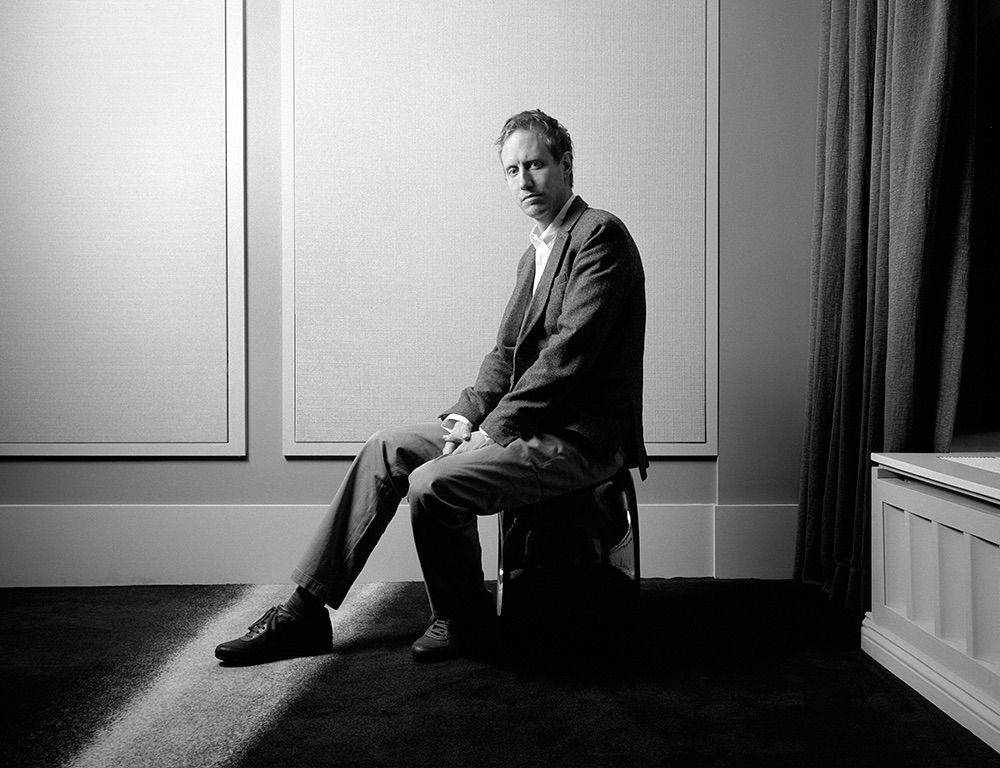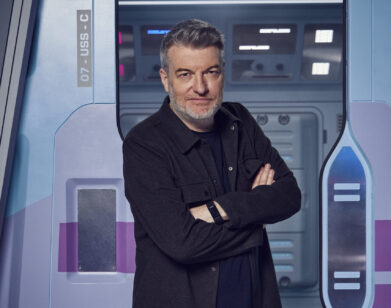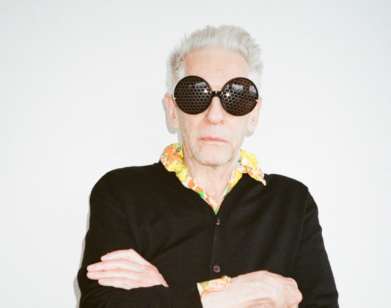To Be Human

ABOVE: LÁSZLÓ NEMES IN NEW YORK, OCTOBER 2015. PHOTOS: VICENTE MUÑOZ.
A Hungarian Jew forced to work in the crematories at Auschwitz-Birkenau as part of the Sonderkommando, the protagonist of László Nemes’s Cannes triumph Son of Saul exists at the very center of the Holocaust inferno. Saul (played by poet Géza Röhrig) is alive where others are dying every hour, but still he is not really spared. His torment is an extended one, a constant hammering out of the soul. When he happens upon the corpse of a young boy who he chooses to believe is his son, Saul decides to give him a fitting burial at any cost—a single-minded quest that will put many others at risk. And more often than not, Saul’s actions seem futile to the point of absurdity. But co-writer-director Nemes doesn’t see it that way. “Is it less valid or valuable to act not necessarily in service of physical survival but something much more sacred?” the 38-year-old Hungarian asks. “I hope that in the most desperate situation, there is still some inner voice that allows us to remain human. That’s the glimmer of hope in my film. Saul remains human,” he continues. “The strategy of the film is to really stay with the main character and create a portrait of a man in the midst of inhumanity.”
EMMA BROWN: How did you meet Géza? I know this is his first film.
LÁSZLÓ NEMES: I knew him from before. I lived in New York for a year and he was here, so I met through friends. Then when I was trying to cast for the main role in my film, the idea came to get away from the usual casting patterns and find someone who was already like Saul.
BROWN: So you didn’t think of him while writing the film?
NEMES: No, it was only after.
BROWN: When you asked Géza to be in the film, what was his reaction?
NEMES: It was very natural. He was very open. I think it interested him.
BROWN: Do you think we’ve progressed since 1944?
NEMES: We have progressed in a technological sense, but I’m not so sure whether we have progressed in a civilizational matter —the quality of the civilization has not improved. It’s a civilization that’s in love with technology but forgetting about the human side of it and the destructive tendency in human civilization has not been faced. We consider the Holocaust as being a sort of strange event taking place on another planet; we never understood in a visceral way that this is something that took place in the heart of man. That’s something that you can feel, the genocidal tendency is within human nature. It seems that if we forget about this, our future is also compromised.
BROWN: What do you think people can do on an individual level?
NEMES: Sometimes it’s only listening to an inner voice and remaining human in a very personal way. But even if it is a personal way, it’s still a very valid way—maybe the most valid way. It doesn’t have to be a collective experience or someone telling you what to do. The most sacred human experience can be a very personal one.
BROWN: Is Saul harmful to others? There is one moment in the film where a man tells Saul he is sacrificing the living for the dead.
NEMES: It really raises the question of whether a very personal way of living—morality—can have its place. As a group, the objective or the references are different. In film, among the dead, there is one who is really living—one who has come back to life and it’s the main character.
BROWN: So you don’t see the other members of the Sonderkommando as living?
NEMES: They’re in a traumatic state in which sometimes they had to burn their own family. Being the bearers of secret, the people who witnessed the very center of the extermination, they are in a modified state of mind. They’re all dead, in a way.
BROWN: You mentioned understanding the Holocaust on a visceral level before. How did you come to understand it in a visceral way before this film?
NEMES: In a very intuitive way. I was just thinking and reading about the experience first-hand. I read the text of the Sonderkommando members. That’s when I came to experience the very here and now of someone who is caught in the middle of this, someone within the concentration camp. These texts gave me a sort of insight—immersed me as a reader in their everyday lives—and it’s something that I want to communicate.
BROWN: Have you been surprised at all by how people have reacted to the film?
NEMES: No. I was surprised by how many countries acquired the film and how broadly it will be distributed in the world, which is a great thing. We didn’t expect it to be communicated to different continents and cultures.
SON OF SAUL IS OUT NOW IN SELECT THEATERS.






